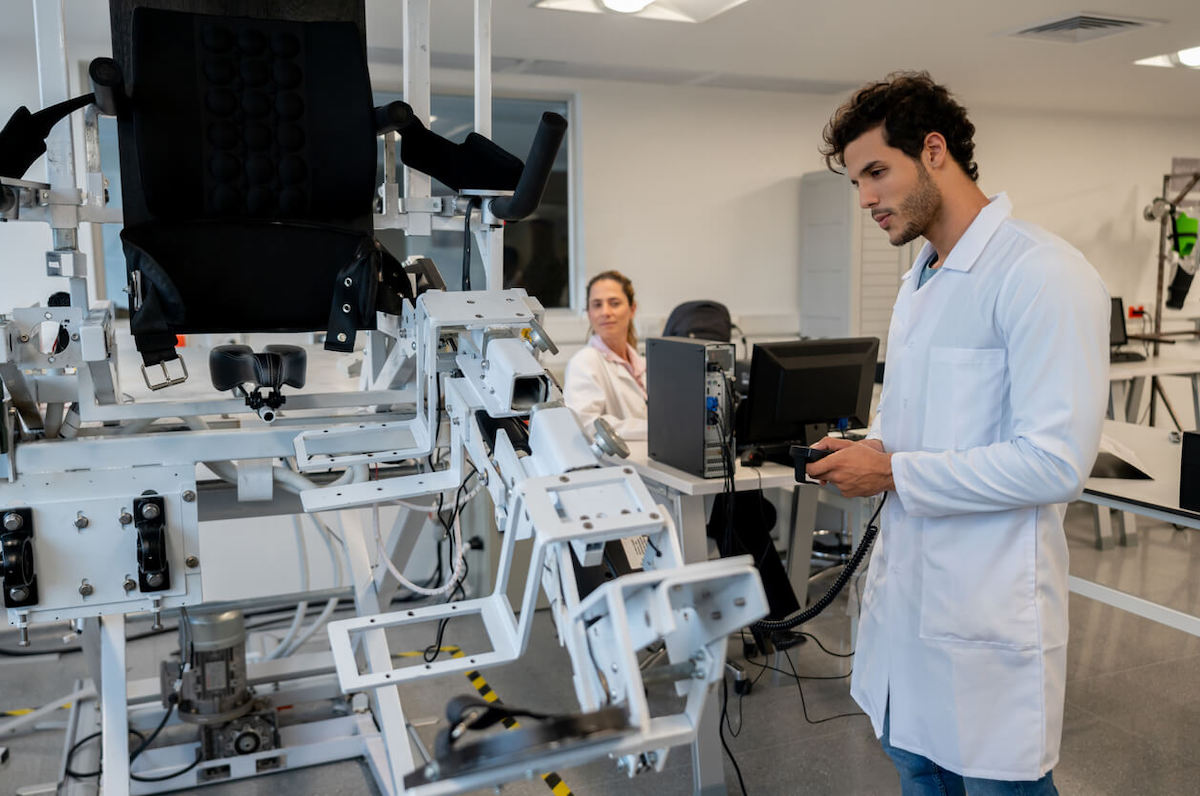A background in engineering can take you in many directions within the field of human movement and rehabilitation science. For those interested in creating and working with lifesaving technologies, biomechanical engineering is a great option.
Read on to learn more about what biomechanical engineers do and how Northeastern University can help prepare you for this career.
What Is Biomechanical Engineering?
Biomechanical engineers design, develop, and maintain equipment and devices related to the human body, such as artificial organs, valves, and limbs, as well as the equipment and sensors used to identify or diagnose various medical conditions. Biomechanical engineers are also sometimes referred to as biomedical engineers.
Jack Dennerlein, professor and interim chair of the Department of Physical Therapy, Movement & Rehabilitation Sciences at Northeastern’s Bouvé College of Health Sciences, defines biomechanical engineering in the simplest terms as “the application of mechanics to biological systems.”
These professionals play a crucial role in the field of human movement and rehabilitation science as they work with the technologies that support human movement science work. Not all biomechanical engineers work in the rehabilitation space, but those that do play a critical role in driving patient outcomes.
What Does a Biomechanical Engineer Do?
Biomechanical (or biomedical) engineers combine engineering principles and science to design and create equipment, devices, computer systems, and software.
Biomechanical engineers must have a variety of specialized skills, but most important are their analytical skills. Communication, creativity, and problem-solving skills are also beneficial for those pursuing a career in biomechanical engineering.
Where Do Biomechanical Engineers Work?
Biomechanical engineers work in teams with scientists, healthcare workers, or other engineers in various settings, including hospitals, clinics, research facilities, and in industry (i.e., product development).
Where and how they work depends on the project. For example, a biomedical engineer who has developed a new device might spend hours in a hospital to ensure that the device works as planned. If the device needs adjusting, the engineer might need to suggest alterations in the manufacturing process.
How Much Do Biomechanical Engineers Make?
The average biomechanical engineer makes approximately $84,000 per year. The top ten percent of all biomechanical engineers earn more than $120,000. In Massachusetts, the average biomechanical engineer makes $100,000 per year, which is more than in many other markets. The demand for this profession is expected to grow by about four percent by 2028.
Becoming a Biomechanical Engineer
A career in biomechanical engineering is a rewarding one for those looking to make a difference in creating lifesaving technologies. Northeastern and Bouvé College of Health Sciences can help you get started in your journey in Massachusetts, which is among the top states to be a biomechanical engineer.
Learn more about the MS in Human Movement and Rehabilitation Sciences at Northeastern and take your first step toward a career in this exciting field today.






Related Articles
4 Pressing Global Health Problems We Face Today
Global Health Careers: How Can I Make a Difference?
Compliance Specialists: Who They Are and What They Earn